Snorkeler Finds Himself In A Close Call After Accidentally Bring A Creature Containing Deadlier Toxin Than Cyanide In His Goggles
A snorkeler in Perth had quite a surprise after spending an hour cleaning up underwater litter. As he was going through his gear, he discovered a potentially deadly blue-ringed octopus had hitched a ride without him even noticing.
Mat Rogerson, the snorkeler, shared images of the octopus clinging to his goggles, and he confessed he hadn't felt a bite, which was alarming because their bites are usually painless.
Advertisement
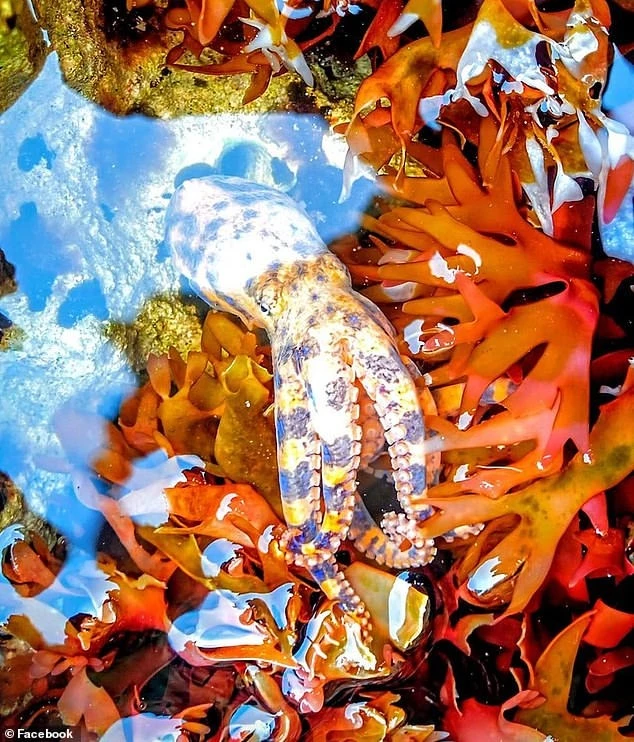 Source: Facebook
Source: Facebook
Rogerson carefully returned the octopus to North Beach, but he was left wondering how it had remained concealed in his equipment. He speculated that it might have emerged from either his black snorkel or a blue rubber dog ball with a hole in it, as there were no other hiding spots in the collected trash. He vowed to be more cautious about what he carries in his wetsuit in the future.
Blue-ringed octopuses are known to be one of Australia's deadliest creatures, thanks to their potent venom, tetrodotoxin, which can prove lethal within minutes. These tiny but striking creatures are often found in tide pools and coral reefs.
Advertisement
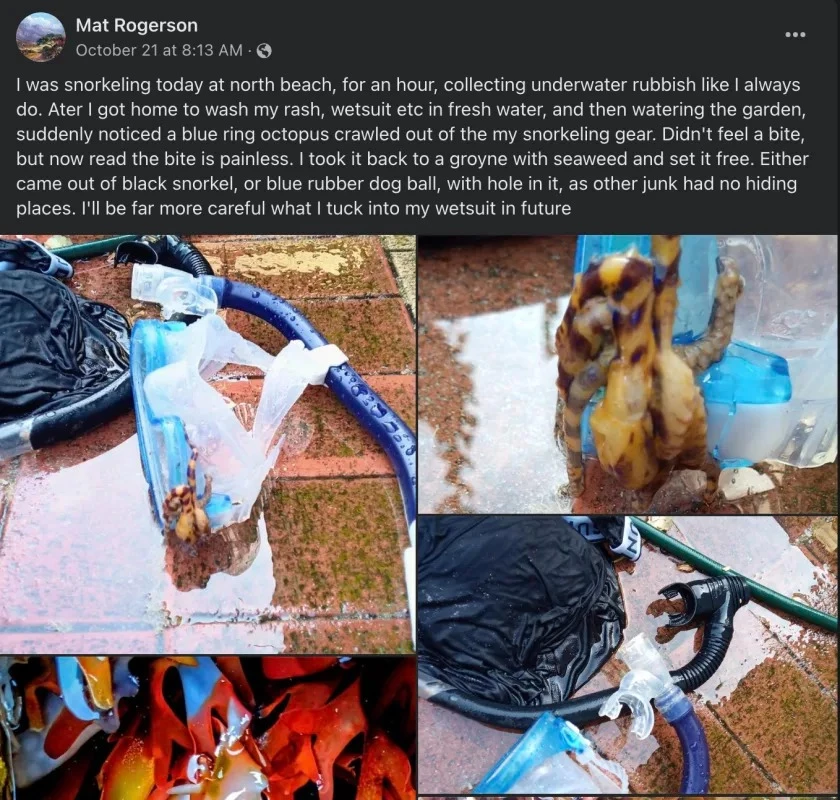 Source: Facebook
Source: Facebook
Aussies were astonished by Rogerson's unexpected guest and jokingly suggested it was the universe's way of repaying him for helping keep the ocean clean. Some praised his efforts, saying he did good by cleaning up the ocean, assisting an octopus, and avoiding harm.
Blue-ringed octopuses may be undeniably stunning and have an Instagram-worthy appearance, but don't let their looks deceive you. They're exceptionally deadly and among the ocean's most toxic creatures.
Advertisement
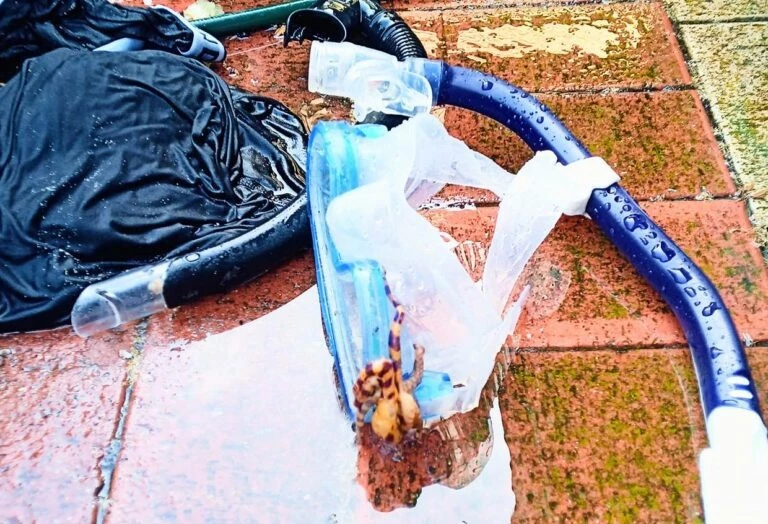 Source: Facebook
Source: Facebook
He took the tiny octopus back to the shore, and it's a good thing he did. These octopuses are typically found in coral reefs and rocky areas in the Pacific and Indian Oceans, along with tide pools, seagrass, and algal beds. When threatened, they display their bright blue rings. Their salivary glands produce tetrodotoxin, which is known to be over 1,000 times more toxic than cyanide.
Advertisement
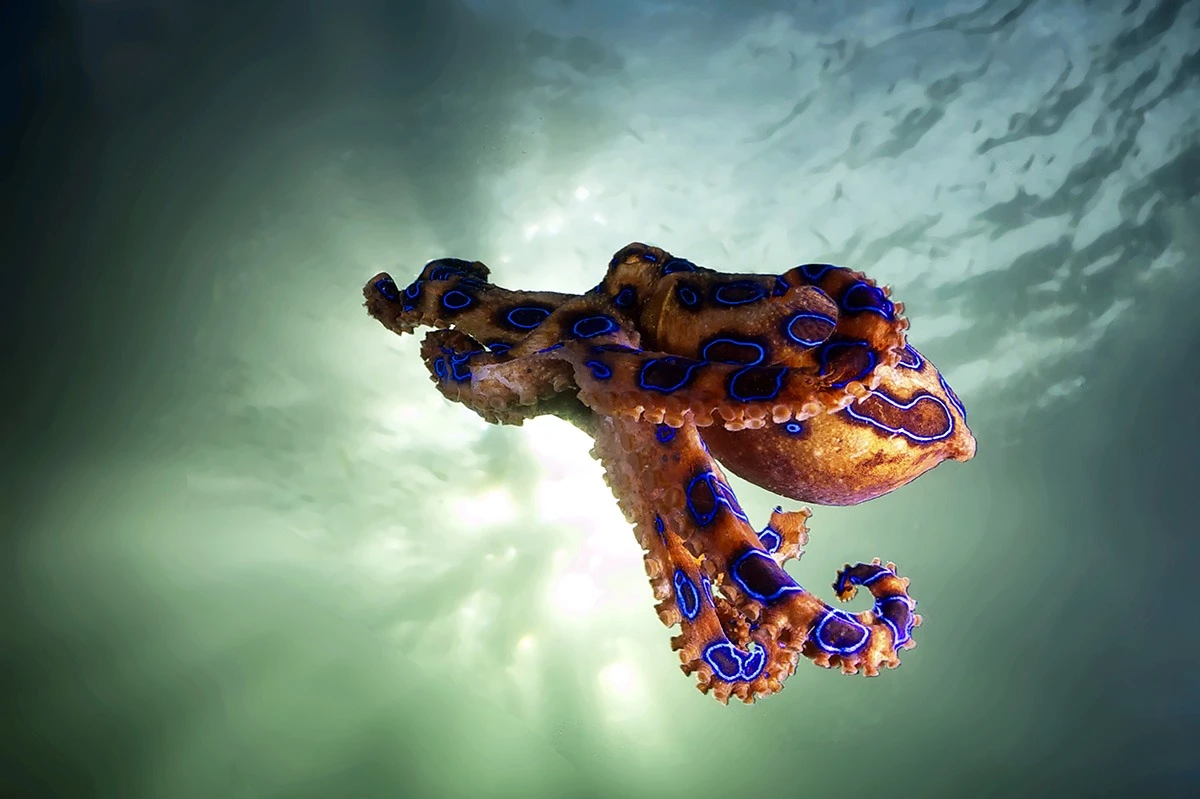 Source: Facebook
Source: Facebook
Their bites are nearly painless, and their venom works quickly, causing muscle weakness, paralysis, vomiting, and dizziness, ultimately leading to respiratory failure and death.
Advertisement
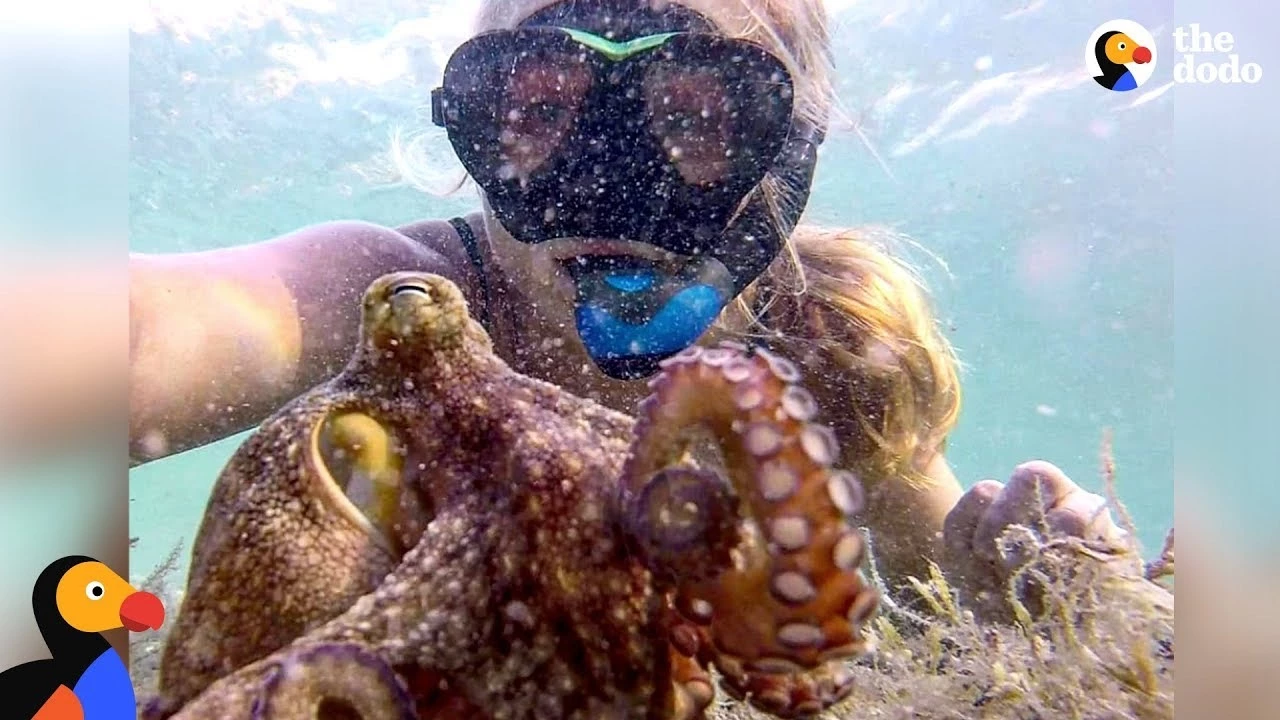 Source: Facebook
Source: Facebook
Social media users were both amazed and shocked by Rogerson's encounter. It's a good lesson for everyone, emphasizing the importance of being cautious even in seemingly clean waters.
Related Articles
- Gorilla Tries To Run Into Cold Water, Regrets It, And Then Acts Cool As If Nothing Bad Happened
- The Heartwarming Tale Of Gentle Outcast Cat's Journey From The Streets To Loving Home In NYC
- Cat Left Behind In Apartment When His Family Moved Is Happy When Finally Adopted After 5 Months Of Waiting
- Man Out Paddle Boarding Suddenly Realizes He Has Chance Encounter With A Very Curious Manatee
- Woman Finds Flowers All Over Bedroom Every Day - Then Relizes They Were Left By A Secret Admirer
- This Man Stops To Rescue 'Angry' Animal In The Road—And Ends Up Making A Friend
- Photographer Spots A Haunting Face Pleading For Help On Beach
- Shoppers Are Completely Stunned As They Spot A Face Pleading For Help At Store’s Glass Door
- Couple Adopts Bulldog Who Looks Similar To Their Pet and Gets A Big Surprise
- Man Sets Up Owl Nesting Box, Then Surprisingly Discovers Fluffy Visitor Inside
Share this article
Advertisement